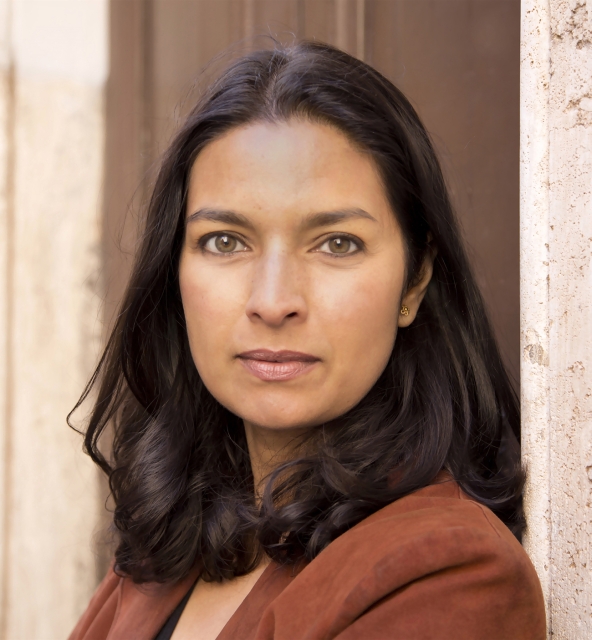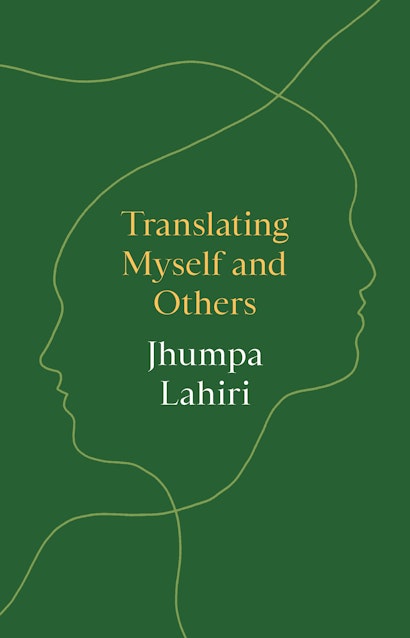On Self-Translation
Having written my novel Dove mi trovo in Italian, I was the first to doubt that it could transform into English. Naturally it could be translated; any text can, with greater or lesser degrees of success. I was not apprehensive when translators began turning the novel into other languages—into Spanish or German or Dutch, for example. Rather, the prospect gratified me. But when it came to replicating this particular book, conceived and written in Italian, into the language that I knew best—the language I had emphatically stepped away from in order for it to be born in the first place—I was of two minds.
As I was writing Dove mi trovo, the thought of it being anything other than an Italian text felt irrelevant. While writing, one must keep one’s eyes on the road, straight ahead, and not contemplate or anticipate driving down another. The dangers, for the writer as for the driver, are obvious.
And yet, even as I was writing, I felt shadowed by two questions: 1) when would the text be turned into English, and 2) who would translate it? These questions rose from the fact that I am also, and was for many years exclusively, a writer in English. And so, if I choose to write in Italian, the English version immediately rears its head, like a bulb that sprouts too early in mid-winter. Everything I write in Italian is born with the simultaneous potential—or perhaps destiny is the better word here—of existing in English. Another image, perhaps jarring, comes to mind: that of the burial plot of a surviving spouse, demarcated and waiting.
The responsibility of translation is as grave and precarious as that of a surgeon who is trained to transplant organs, or to redirect the blood flow to our hearts, and I wavered at length over the question of who would perform the surgery.
The responsibility of translation is as grave and precarious as that of a surgeon who is trained to transplant organs, or to redirect the blood flow to our hearts, and I wavered at length over the question of who would perform the surgery. I thought back to other authors who had migrated into different languages. Had they translated their own work? And if so, where did translation taper off, and the act of rewriting take over? I was wary of betraying myself. Beckett had notably altered his French when translating himself into English. Brodsky, too, took great liberties when translating his Russian poetry into English. Juan Rodolfo Wilcock, an Argentine whose major works were composed in Italian, had been more “faithful” when rendering his texts into Spanish. Another Argentine, Borges, who had grown up bilingual in Spanish and English, translated numerous works into Spanish, but left the English translation of his own work to others. Leonora Carrington, whose first language was English, had also left to someone else the messy business of translating many of her French and Spanish stories, as had the Italian writer Antonio Tabucchi in the case of Requiem, the great novel he wrote in Portuguese.
When an author migrates into another language, the subsequent crossing into the former language might be regarded, by some, as a crossing back, an act of return, a coming home. This idea is false, and it was also not my objective. Even before I decided to translate Dove mi trovo myself, I knew that the idea of “coming home” was no longer an option. I had gone too deep into Italian, and so English no longer represented the reassuring, essential act of coming up for air. My center of gravity had shifted; or at least, it had begun to shift back and forth.
* * *
I began writing Dove mi trovo in the spring of 2015. I had been living in Italy for three years, but had already made the anguished decision to return to the United States. As with most projects, in the beginning, I had no sense that the words I was scribbling in a notebook would develop into a book. When I left Rome in August of that year, I took the notebook with me. It languished in my study in Brooklyn, though in retrospect “hibernated” is the apt term, for when I returned to Rome that winter, I found myself turning back to the notebook, which had traveled with me, and adding new scenes. The following year I moved to Princeton, New Jersey. But every two months or so I flew to Rome, either for short stays or for the summer, always with the notebook in my carry-on suitcase, and by 2017, once the notebook was full, I began to type out the contents.
In 2018, on sabbatical, I was able to move back to Rome for an entire year for the book’s publication. When asked about the English version, I said that it was still too soon to think about it. In order to undertake a translation, or even to evaluate a translation someone else has done, one must understand the particulars of the book in question, just as the surgeon, ideally, needs to study her patient’s organism before entering the operating room. I knew that I needed time—a great deal of it—to pass. I needed to gain distance from the novel, answer questions about it, hear responses from my Italian readers. For, though I’d already written the book, I felt the way my own immigrant parents perhaps felt as they were raising me: the author of an inherently foreign creature, both recognizable and unrecognizable, born from my flesh and blood.
Regarding the eventual English translation, two camps quickly formed. Members of the first camp were those who urged me to translate the book myself. Their opponents urged me, with equal vehemence, to steer clear of the operation. To return to my analogy of the surgeon, I sometimes said, to members of the first camp, What surgeon, in need of an operation, would take the scalpel to herself? Wouldn’t she entrust the procedure to another pair of hands?
Following the advice of Gioia Guerzoni, an Italian translator friend who belonged to the second camp, I sought out the translator Frederika Randall, who worked out of Italian into English. Frederika was an American based in Rome for decades, not far from where I lived: the very part of the city where my book, loosely speaking (though I never specify this), is set. When she said she was willing to translate the first dozen or so pages, so that we could both get a feel for how her translation would sound, I was relieved. I was convinced that she was the ideal person to translate my novel, not only because she was an extremely skilled translator, but because she knew the setting and atmosphere of the book far better than I did.
I thought that perhaps, once she’d finished the translation, I could weigh in on one or two matters, and that my role would be respectfully collaborative. Grandmotherly, which was how I felt when Mira Nair had turned one of my other novels into a film. Perhaps this time I would be a slightly more involved grandmother than I had been to Ann Goldstein’s translation of In Other Words (produced at a time when I was wary of any reconnection with English, and did not relish at all the role of being a grandmother). Deep down, however, I was convinced that when I saw the English version, it would reveal, brusquely and definitively, the book’s failure to function in English, not due to any fault of Frederika, but because the book itself, inherently flawed, would refuse to comply, like a potato or an apple that, decayed within, must be set aside once it is cut open and examined, and cannot lend itself to any other dish.
Instead, when I read the pages she prepared for me, I found that the book was intact, that the sentences made sense, and that the Italian had enough sap to sustain another text in another language. At this point a surprising thing happened. I switched camps and felt the urge to take over, just as, watching my daughter turn somersaults underwater this past summer, I, too, was inspired to learn how. Of course, that discombobulating act of flipping over, the idea of which had always terrified me until the day I finally figured out, thanks to my daughter, how to execute the maneuver, was exactly what my own book had to do. Frederika, who had lived astride English and Italian for so very long, was bipartisan to the core. She had understood, initially, why I’d been reluctant to translate the book myself, and when I told her I was having a change of heart, she wasn’t surprised. Like my daughter, she encouraged me. As is often the case when crossing a new threshold, it had taken her example, just like my daughter’s, to show me that it could be done.
To translate is to alter one’s linguistic coordinates, to grab on to what has slipped away, to cope with exile.
I was still in Rome—a place where I feel no inspiration to work out of Italian into English—when I came to my decision. When living and writing in Rome, I have an Italian center of gravity. I needed to move back to Princeton, where I am surrounded by English, where I miss Rome. Italian translation, for me, has always been a way to maintain contact with the language I love when I am far away from it. To translate is to alter one’s linguistic coordinates, to grab on to what has slipped away, to cope with exile.
This essay is an excerpt from Translating Myself and Others by Jhumpa Lahiri.
About the Author
Jhumpa Lahiri teaches creative writing and literary translation at Princeton University, where she is director of the Program in Creative Writing. A writer in both English and Italian, she is the author of Interpreter of Maladies, which won the Pulitzer Prize, and the editor of The Penguin Book of Italian Short Stories. She has translated three novels by Domenico Starnone into English.

